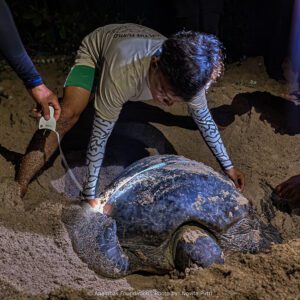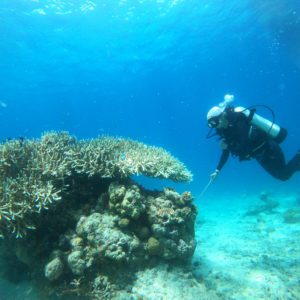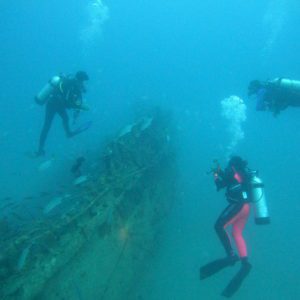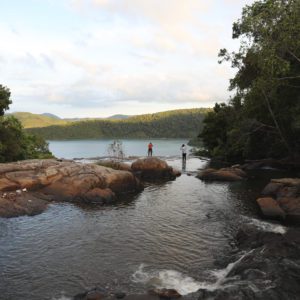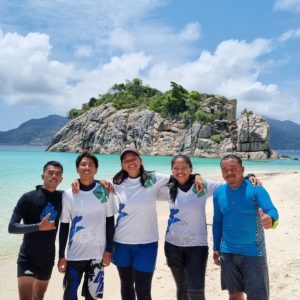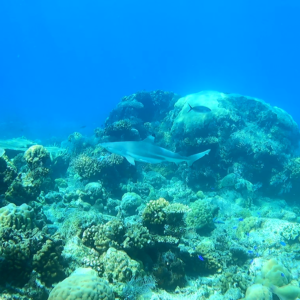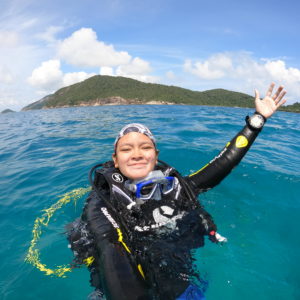The turtle tagging activity is the first in Anambas Islands and it is pivotal in enhancing our understanding of turtle populations and their migration behaviors.
Upcoming Events
KELAUT: Shaping Next Generation Conservation Leaders in Anambas Islands
We created KELAUT with the goal of providing education to schoolchildren about ecosystems and conservation works to preserve and restore the Anambas Islands.
Empowering Young People With Conservation Skills For Sustainable Future
A new initiative by the Marine Conservation team was launched in 2023 called Guardians of the Anambas Seas. Just as the name suggests, this initiative is a training program for the youths of Anambas Islands to equip them with the necessary skills and knowledge to become future marine conservationists. Supported by PADI Aware Foundation Community...
Notes from the Anambas: Reflecting on Second Term of 2022
Updates and highlights of our work from May to August 2022.
Wreckage of Sunken Fishing Vessel found in Kiabu Seas
Marine conservation team discovered a sunken fishing ship in Kiabu seas
2022 World Ocean Day Celebration in Kiabu
To celebrate the annual World Ocean Day that falls on June 8, this year we and the LOKA KKPN Pekanbaru held a three-day event in Kiabu Village for the schoolchildren in Kiabu Village. The event was an extension of our KELAUT (Nature and Marine Class) activity under the Marine Conservation program that aims to educate...
Notes from the Anambas: Reflecting on First Term of 2022
The first term of 2022 was filled with many changes, both in our programs and in our team. Here are the highlights of the first four months of 2022.
A Recap of Second Annual Reef Health Monitoring (RHM) in Kiabu and Telaga
March was a rather exciting month for us, the marine conservation team, as it was the month when we had our second annual Reef Health Monitoring (RHM). Compared to the first RHM, there were a few improvements made this year, both as a team and for myself.
Why we Shouldn’t Kill and Consume Sharks
Several important reasons why sharks are not to be killed and consumed.
What Working in Anambas has Taught me about Rural Island Communities and Marine Conservation
This past year of living on a remote island has taught me a lot, not just about marine conservation but also working alongside local island communities.
- 1
- 2

